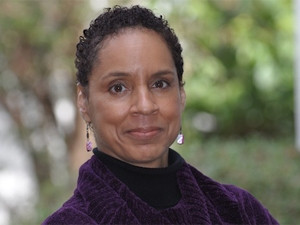
The South African ICT industry urgently needs to create an Internet governance forum in order to contribute to the definition and creation of a local Internet governance policy capable of promoting the use of the Internet to innovate and advance economic growth.
So said Dean Garfield, president and CEO of American IT advocacy and policy think-tank, the Information Technology Industry Council, speaking last week at a roundtable discussion on Internet governance organised by the South African Communications Forum (SACF).
"Africa is witnessing the fastest growth in the use of mobile technology in the world, and South Africa is currently leading the growth path with more than 32 million people expected to use the Internet in the near future," said Garfield.
Statistics SA recently published the General Household Survey report with statistics about South African households in 2013, including a section about Internet and telecommunications. The main finding is 40.9% of South African households have at least one member who either used the Internet at home or had access to it elsewhere - which on the surface sounds promising. However, only 10% of households had Internet access at home. This means 30% of the people who go online do it either at work (16%), school/university (5.1%) or at an Internet caf'e (9.6%).
Driving economies
Garfield pointed out there is empirical evidence that the Internet is driving economies at a faster pace than the industrial revolution, and the future challenge is to secure the efficiency of the dynamic space offered by the Internet.
He said the creation of an Internet governance regime based on principles of neutrality, transparency, fairness and openness is a pre-requisite for the promotion of creativity and innovation on the Internet.
He also urged SA to champion a multi-stakeholder approach to the creation of both local and global Internet governance regimes as a way of ensuring all stakeholders' interests in future use of the Internet are met.
In an interview with ITWeb, SACF CEO, Loren Braithwaite-Kabosha, said SA is gradually moving towards creating a full-scale information-based economy that relies on the use of ICT for economic development in all sectors.
Central to this, she said, is the use of the Internet for knowledge-sharing among South African citizens to enable equal access to development information on the Internet, leading to the facilitation of equal access to development opportunities. The use of ICT, especially the Internet, to innovate and access global markets, is critical to enable SA to fully participate in the global economy, she said.
Thus, she added, it is important to ensure the Internet is governed in ways that ensure the benefits derived from its use for economic development can be fully exploited.
Critical principles that need to be guaranteed in order to promote optimal use of the Internet for economic growth include: open and affordable access to quality Internet, free-flow and open access to information, and protection of personal privacy and dignity.
Improving stats
According to Braithwaite-Kabosha, recent analyses by Boston Consulting Group showed the Internet has contributed a mere 0.9% to SA's GDP, with a potential contribution of up to 12%. The proposed South Africa Internet Governance Forum will have as its primary objective the development of a strategy to improve these statistics.
"It is widely accepted as true in global economic development terms that 10% of Internet penetration leads to 1.4% growth in GDP. Currently, broadband penetration in South Africa stands at a low of 3% compared to 10%, 14%, 17% and 1% in Brazil, China, Russia and India, South Africa's partners in the BRICS community; Internet usage remains moderate at 40%.
"Based on South Africa's low rate of Internet penetration, it is clear the Internet's potential to significantly contribute to economic growth is far from being fully utilised. South Africa can, however, leverage on the reasonably modest number of Internet users to create an Internet governance regime that promotes innovation and creativity among users, leading to a significant contribution by the Internet to economic growth," Braithwaite-Kabosha says.
Ideally, she concludes, the Internet governance forum should enable all stakeholders such as government, the ICT industry, and civil society equal opportunities and spaces to define the country's Internet governing landscape.
Share